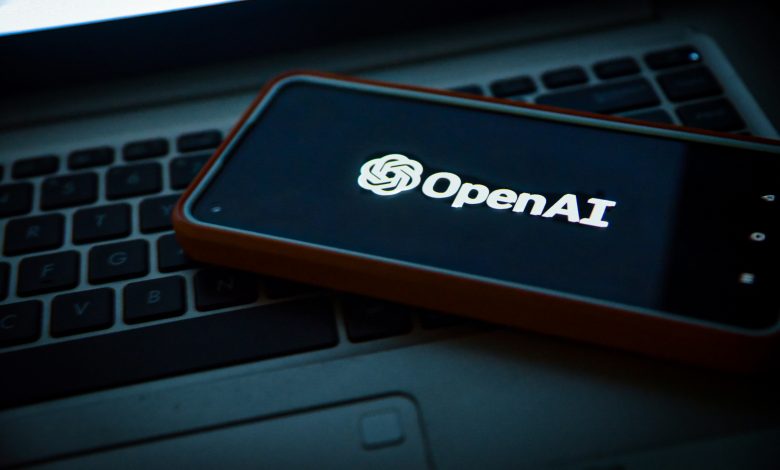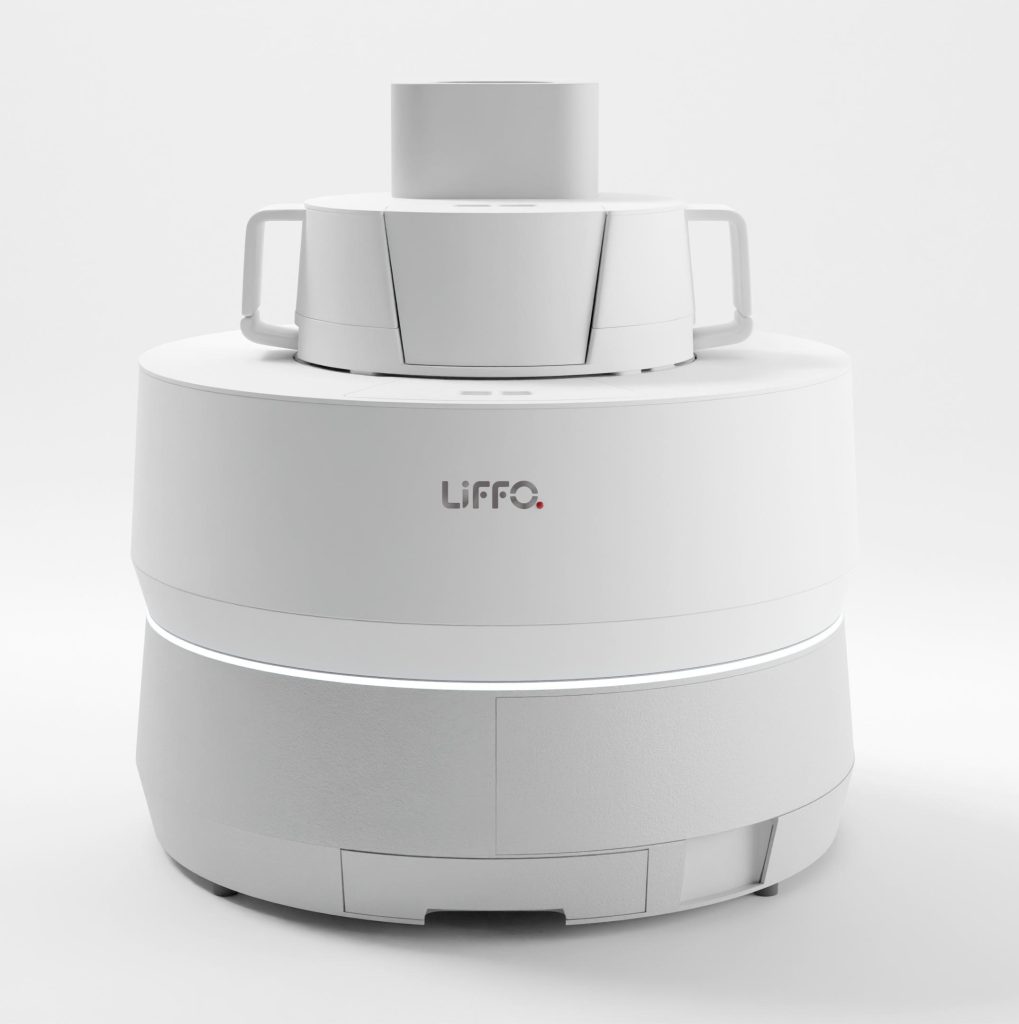
This October, we’ve seen AI reach a number of interesting milestones. The first of these can be found at the intersection of wearable tech and AI.
Although Meta was behind the AI curve for a couple of years, Meta glasses are proving to be a huge hit with consumers so far, creating the kind of buzz that’s been lacking in the tech scene recently. In fact, Barclays analysts predict smart glasses could become the most disruptive innovation since mobile phones.
The tech giant teamed up with Ray-Ban for the first edition of its AI glasses, which have rapidly gained popularity. This month, shares in Ray-Ban maker EssilorLuxottica hit an all-time high, surging over 10% following a record quarter, thanks to sales of the lenses that fuse style with innovation.
We can expect to see Meta’s lead with smart glasses surge even further following the launch of Oakley-Meta Vanguard this week. The do-it-all glasses that take AI to the most extreme locations and activities and could easily make older tech like GoPros obsolete in a couple of years.
The runaway success of AI glasses suggests that the future of the technology lies in seamless integration. On this front, OpenAI launched the new Atlas browser that fuses powerful chatbot functionality with web browsing, searching and more.
In addition to being able to save cookies and passwords, Atlas has an optional “memories” feature. This offers deeper personalization on the one hand, but it will mean a loss of data privacy for users on the other.
Aside from the question of how data is used, solutions like Atlas also raise concerns in some camps about how heavily people are relying on the technology to source information.
This concern is likely to gain ground after results from an intensive international study were published this week. The research, conducted by the European Broadcasting Union (EBU) and the BBC, assessed AI assistants in 14 languages for accuracy, sourcing and ability to distinguish opinion versus fact, including ChatGPT, Copilot, Gemini and Perplexity.
The study found that these leading AI assistants misrepresent news content in nearly half their responses, at 45%, and found general errors in a further 85% of responses.
Aside from these headline news stories, AI has been breaking boundaries across industries. Here’s a roundup of startup news you may have missed this October.
Waydev AI launches to support software engineers with the right tools
AI has been rapidly adopted by software developers and engineers, proving adept at a wide range of coding tasks.
However, while 90% of developers today are already using AI, most teams lack meaningful measurements to distinguish value from risk. This leads to higher instability, increased failures, and more downstream rework.
To tackle this, Waydev has launched Waydev AI, an AI-native conversational platform that fuses AI measurement with intelligence.
With Waydev AI, leaders simply connect their development tools – GitHub, Jira, Cursor, and more and start asking questions in natural language, such as AI adoption rates in a given quarter or how AI has impacted cycle times and bug rates.
In response, Waydev AI instantly delivers clear, data-backed answers in visual reports and tables to give developers immediate feedback with helpful insights.
Provision Raises $7M to Build First AI Co-Pilot for Construction Estimators
$500B is lost every year due to errors in project cost estimation. Provision is an AI co-pilot for construction estimators with best-in-class accuracy, analyzing both image- and text-based data.
The startup raised a USD $7M seed round towards its agent platform, helping contractors save hundreds of billions in lost profits. The round was led by Cercano Management with participation from YCombinator, One Way Ventures and others. This brings Provision’s total funding to USD $8.7M.
Now, Provision has launched Scope Agent to help contractors build project scopes of work to bring a custom-built intelligent solution to solve the challenge of project estimation for the construction industry.
The company has recently launched Scope Agent to help contractors build project scopes of work following a year of incredible growth for the startup last year.
Robomagister expands to the US and launches an AI-powered kitchen Robot on Kickstarter, called Liffo
Italian startup Robomagister made its U.S. debut this October by launching a Kickstarter campaign for Liffo, an AI-powered autonomous kitchen robot designed to prepare meals without supervision.
After raising nearly $12 million in Italy and unveiling the device at CES Las Vegas in early 2025, founders Massimiliano Delsante and Stefano Pedrazzi brought their innovation to American kitchens.
Liffo automates the entire cooking process, from recognizing ingredients to executing Michelin-star-curated recipes, all managed through a mobile app.
Blending Italy’s culinary heritage with advanced robotics, the campaign invited users to experience a new era of intelligent, effortless home cooking.
“With Liffo, we’re not just adding technology to the kitchen, we’re redefining it.” said Massimiliano Delsante, co-founder of Robomagister
Prezent raises $30M in funding to bring all-in-one AI to corporate communications
Prezent AI is an enterprise business presentation platform that provides corporate users with powerful tools that understand the unique nuances of each industry and the organization.
The company recently secured an additional $30M in funding to continue its mission of providing excellent business communication services to enterprises.
Prezent is also set to increase its foothold in the life sciences sector by acquiring the largest business presentation services company for this vertical, Prezentium, in a cash plus equity deal.
These two new milestones mean that Prezent AI’s valuation has now reached an impressive $400M, placing the team on track to become the first enterprise business communication unicorn.
Ness Digital Engineering bets big on LATAM with new office
This October, Ness Digital Engineering (Ness), a global full-lifecycle digital services transformation company, announced the inauguration of its Mexico headquarters in Puerta de Hierro, one of Guadalajara’s most prestigious business districts.
In a move that underscores Latin America’s rising importance in the global tech ecosystem, this reflects Ness’s commitment to building high-impact, nearshore Centers of Excellence for AI-driven Intelligent Engineering.
The Guadalajara center launches with 50 employees by the end of 2025, with aggressive growth plans to scale to 200+ employees by the end of 2026 and 300+ employees by the end of 2027.
This strong trajectory reflects both customer demand and Ness’s intent to make Mexico a true hub for Intelligent Engineering, where new software products and platforms will be conceived and built.

Planno brings GeoAI to solar developers
Solar energy is the fastest-growing source of power in the U.S. in a positive milestone for the future of renewable energy.
However, finding untapped new leads now takes more time, more effort and more resources for solar developers who need sharper tools, stronger data and far more precise targeting to stay ahead.
This month, Daniel Domingues, founder and CEO of Planno, published an article detailing the benefits of Geospatial AI for solar developers.
GeoAI comes into play, allowing solar developers to find and qualify untapped rooftops at scale, not through guesswork, but by combining satellite imagery, LiDAR and solar irradiation data with machine learning models. These algorithms can automatically detect, measure, and classify rooftop potential, turning massive volumes of geospatial data into precise, actionable intelligence.
Credibl and Deloitte Australia partner up on AI-powered smart sustainability stack
From July 2026, more Australian companies will be required to report climate-related financial information in line with the Australian Accounting Standards Board (AASB) framework.
For many organizations, this represents a major shift in how sustainability data is collected, verified and reported.
Credibl, led by CEO Jitesh Shetty, has entered a strategic alliance with Deloitte Australia to launch SustainNext Climate Reporting, a collaboration designed to help businesses address the growing complexities of climate disclosure.
The solution brings together Credibl’s AI-powered smart sustainability stack with Deloitte’s 175-year history in assurance and sustainability advisory, creating a platform that dramatically simplifies climate reporting.
Flare launches identity exposure management to combat 50 million weekly breached identities
Flare, a leader in Threat Exposure Management (TEM), has introduced Identity Exposure Management (IEM), a new capability aimed at preventing compromised employee accounts from triggering large-scale cyber incidents.
Exposed credentials remain one of the most common entry points for attackers. According to Verizon’s 2025 Data Breach Investigations Report, stolen credentials were involved in 88% of web application attacks, while CrowdStrike’s 2025 Global Threat Report found that the average time from compromise to breakout is just 48 minutes. The surge of Infostealer Malware-as-a-Service has made credential theft easier and faster than ever.
Flare’s research shows that nearly 50 million breached identities circulate weekly across Telegram and dark web marketplaces — giving threat actors a constant supply of stolen logins and browser data to bypass multi-factor authentication and take over accounts.
“Many of the largest breaches in recent years stem from attackers simply logging in,” said Nick Ascoli, Director of Product Strategy at Flare. “Each exposed account represents a critical risk. Detecting and remediating these exposures before attackers exploit them is mission-critical.”
AI is driving a new industrial era: Fracttal’s Maintenance Heroes 2025 Congress sets the course for change in Latin America
For the fourth year, the Maintenance Heroes 2025 Conference, held on October 29 and 30, marked a milestone in the evolution of industrial maintenance in Latin America by focusing on the impact of artificial intelligence (AI) and automation on asset management.
Organized by Fracttal, the event brought together international experts and industry leaders under the theme “AI for Future Maintenance Leaders,” addressing how the technology is transforming processes, leadership, and sustainability in the industry.
Through a hybrid format, the conference explored everything from the practical applications of AI to reflections on ethics and leadership in the digital age, consolidating it as the leading regional meeting point for those driving innovation and sustainable development in maintenance.






